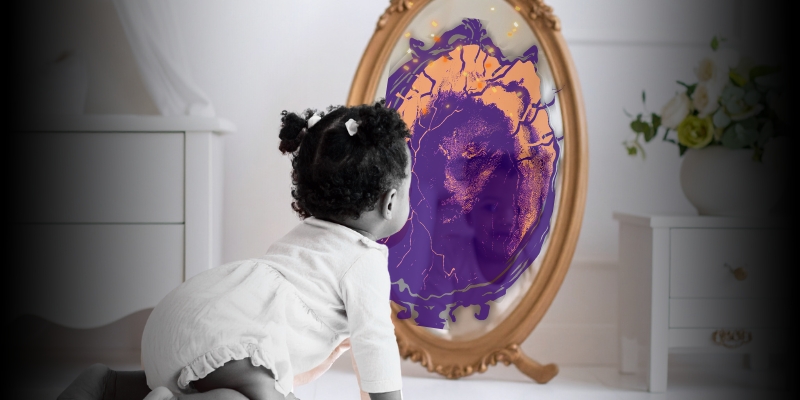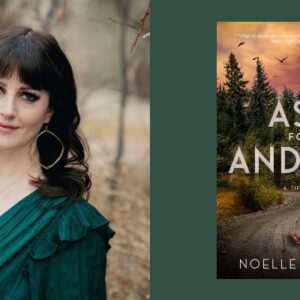Kids scare the hell out of me.
Or rather, you could say the prospect of parenthood scares the hell out of me. All my life, I never pictured myself having kids. I’m now in my early (ahem) forties and despite a close call or two I’ve made it this far only being a parent to a series of very fantastic pit bulls, who don’t need college funds and never ask to borrow the car.
But that’s not to say I don’t have some appreciation for the anxieties that come with being a parent. I remember coming across a book called Post Secret early in the 2000s where people could anonymously write in and share their secrets. The entry that sticks out the most in my mind was, “I love one of my children” (emphasis mine).
I remember standing there in the old Waldenbooks in Horton Plaza—the most demented shopping center ever built, but that’s a story for another time—and feeling like somebody punched me in the face. I guess I’d always thought loving your kids was something that happened automatically. That doesn’t always mean you treat your kids well, but even when you’re being a terrible parent you still love them, right?
Right?
Maybe not.
This is the part where I should probably mention a salient personal fact: I was given up for adoption at birth. I want to be careful not to connect the dots too definitively here—yes, giving your kid away can also be a form of love if it’s the best thing for them—but handing your child over to strangers before the epidural’s worn off at least raises the question of what parental love is and if everyone experiences it the same way, if it all. Maybe some people don’t.
That’s what Post Secret taught me, and it certainly made me more introspective—or navel-gazy—about my own experience. And it became one of the reasons* I’ve shied away from having children: I’m haunted by the fear of having kids I don’t love. Or don’t like. Or find a way to screw up the world that forever taints your name (shout out to parents of serial killers everywhere!). (*Not the primary reason, though. I mainly just like having my weekends free to hit the beach and drink beer.)
What if your child gets sick or dies is so last year. What if your child sucks is way more 2025. Especially now that we’re living in an age where parents are fighting tooth and nail to hold onto their youth harder than ever before, and have the means to do so via social media and bars that let kids in for some ungodly reason.
Nobody wants to be a parent, or just a parent. These goddamn millennials** and zoomers love sipping IPAs with their friends and getting neck tattoos and seeing Bon Iver or whatever the devil you children are listening to today, but they also want to have a mewling infant in a baby bjorn strapped to their chest at the same time. (**That’s me. I’m a goddamn Millennial [although I am culturally Gen X.])
And the delightful sparkle of exotic hop combinations dancing on their tongues can’t fully distract them from the nagging fear that little Kaedence or Ril3y or—shudder—Daenarys will grow up to listen to heinous crap like Nickelback. Or, y’know, murder a bunch of people. My baby boomer parents only had to worry about weird men with vans and sitting close to the TV. Being a parent these days seems like an utter nightmare.
That’s where horror comes in.
It’s cliche but true to say horror has timeless appeal because it’s a way of safely engaging with and exploring our fears. Being afraid your child will grow up to be evil, or at least have an affinity for Canadian butt rock bands they must’ve gotten from their other parent, is a legit fear. What does that say about you if the fruit of your loins is out there chopping people up, or cheating old people out of their retirement funds, or pronouncing it “Feb-BREW-ary?”
Maybe nothing. Maybe everything. But we should talk about it, no?
The title novella of my new collection, Man, F*ck This House (And Other Disasters) is my direct attempt to wrestle with some of these feelings. It’s about a mom who loves one of her children. At most. And a very brilliant and precocious child who knows that child isn’t him.
I wasn’t sure how audiences would respond to this particular dynamic, especially because I was primarily writing from the perspective of a midwestern mom (spoiler alert: I am neither of those things) but the response has been super validating. There have been so many times a mother has come up to me at a convention and whispered, “I feel like this sometimes and I can’t tell anyone, thanks for writing this.”
Which sounds like a bullshit story but I promise it’s not, and I don’t recount this for the purposes of showing off but to affirm that there is an entire, um, parental underworld for lack of a better term that you are unaware of. There’s people working things out that you can’t imagine. And I think that deserves to be reflected in fiction.
You have seen The Babadook, right? Some parents live in a constant state of fight or flight every single day.
With my novella, I started with the “evil kid” trope. He’s even named Damien, for chrissakes. I couldn’t be more on the nose if I was dancing on top of a bright red rubber ball. But the twist—spoilers—is it’s all a put-on. Or perhaps a coping mechanism. Sabrina’s decided she’s birthed an evil kid, and because children like to please their parents, Damien has accommodated her by crafting a public persona that’s disturbing and creepy as hell.
But when he’s alone with his sister, or playing his favorite game Fortnite, he’s a completely different child. Curious. Sarcastic. Full of life. In a way, it’s like a contrasting image of the typical horror movie child. A negative turned positive.
Because why do we find sinister children scary? Stephen Graham Jones once told me—talking about clowns, but also works for kids—when something’s insides doesn’t match it’s outsides, it taps into our basest fears because it throws our entire understanding of the world out of whack.
A child’s exterior is one of vulnerability. But what if their insides were made of sharp edges that’ll cut us until we bleed out? And how do you fight something millions of years of evolution have conditioned you to care for?
That’s why stuff like Children of the Corn is scary. It causes us to question our most fundamental assumptions about the universe. Kids are things we protect from threats. Not the threats.
Right?
Right?
In case you’re wondering, my ultimate creepy kid horror movie is, surprisingly, not The Exorcist or The Village of the Damned or The Shining, but Orphan. It’s not the best movie out of the ones I just named, but it’s the purest example of the principle that when the insides don’t match the outsides, you will be scared AF.
The conceit is simple: the titular orphan, Esther, is a grown ass woman masquerading as a kid. And that is what’s so scary about her. Just like a snake whose scales let it blend it with its surroundings, Esther’s got teeth and venom.
And, wearing the skin of an innocent child, you’ll never see her coming.
There’s lots of things that are scary about kids, both our own and other peoples’ (every killer is someone’s kid). But if I had to boil it down to one thing, and one thing only, the single scariest thing about kids is that they are both us and not us at the same time. It’s like looking at yourself in the mirror, but when you go to touch your nose that image scratches its ear instead. Our children are pieces of us that have gone off and become independent. Like a hand that moves of its own accord.
It’s like looking at yourself in the mirror, but when you go to touch your nose that image scratches its ear instead.The words “control” and “safety” are near synonyms. If you are in control, true control, safety is a given. But when you lose control—and nothing says “losing control” like watching a creature with fifty percent of your DNA develop its own thoughts and feelings—safety is still possible, but can no longer be taken for granted.
Children represent the ultimate loss of control: giving a piece of ourselves autonomy and watching that autonomy become more and more absolute, until we are the ones in diapers, unable to even form a cogent sentence, and our kids—ourselves—are looking down at us in our hospice beds?
That’s freaking horror.
***


















